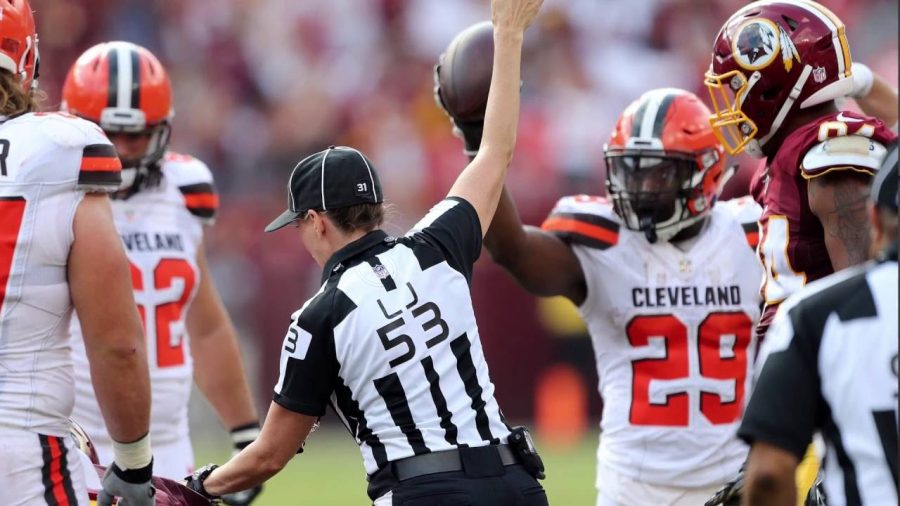Poor refereeing beats superb play—every time
Photo courtesy of NFL
Cleveland Browns running back Duke Johnson showing the referee he has the ball. Johnson recovered his own fumble in a game against the Redskins, but the referees gave the ball to the Redskins.
March 27, 2017
Only 23 pitchers in the history of Major League Baseball have thrown a perfect game, and in 2010 Armando Galarraga looked to add his name to the history books.
With two outs in the ninth inning, Galarraga was one out from a perfect game, but the umpire called the runner safe when every replay showed that he was out. Galarraga’s near-perfect game is just one of many examples of bad officiating ruining the outcome of a game.
While Major League Baseball wasn’t as bad in 2016, the Toronto Blue Jays got upset over some very questionable strike calls in playoff games against the Cleveland Indians. Though it was clear the outcome of the series would have been the same, the umpire’s calls were still in favor of the Indians when calling balls and strikes.
“All you gotta do is look at video and count how many times Indians pitchers have thrown over the heart of the plate,” said Blue Jays outfielder Jose Bautista. “It hasn’t been many.”
The 2016 football season was historically bad for NFL refs. In October, Browns running back Duke Johnson fumbled the ball against the Redskins, but then recovered it himself. Even though Johnson clearly showed the referee that he had the ball, it was ruled a Redskins recovery.
“When the official tells you it’s already been reviewed and it’s their ball, there’s nothing you can do,” said Johnson. “I can yell and scream and do whatever, but it’s not going to change the call.”
The NBA wasn’t safe last season either. When the Spurs played the Thunder during the 2016 playoffs, one game ended in a 98-97 Thunder win, and one of the craziest finishes in NBA history. After the game, the referees admitted that there were five incorrect calls in the last thirteen seconds of the game, all of which could have completely changed the outcome.
“They’re doing better,” said senior Owen Donovan, “but late in games they just get scared.”
The increased use of instant replay to make sure calls are right doesn’t seem to be helping much, and it may lead more drastic measures. One option in the near future is robot referees who hypothetically would never miss a call.
In June 2016, an independent league used a robot to determine balls and strikes. The call was then fed to the umpires through an earpiece, and there weren’t any missed calls.
“I’m trying to give the home plate umpires the same information that millions of people have access to at home and can see in real time,” said Eric Byrnes, former major league player and leader of the movement.
Not everyone is ready for big changes in the way professional sports uphold their rules.
“People are all hung up on creating jobs and then they want to give them to a robot,” said senior Abbie Bonk. “It’s not a good idea.





